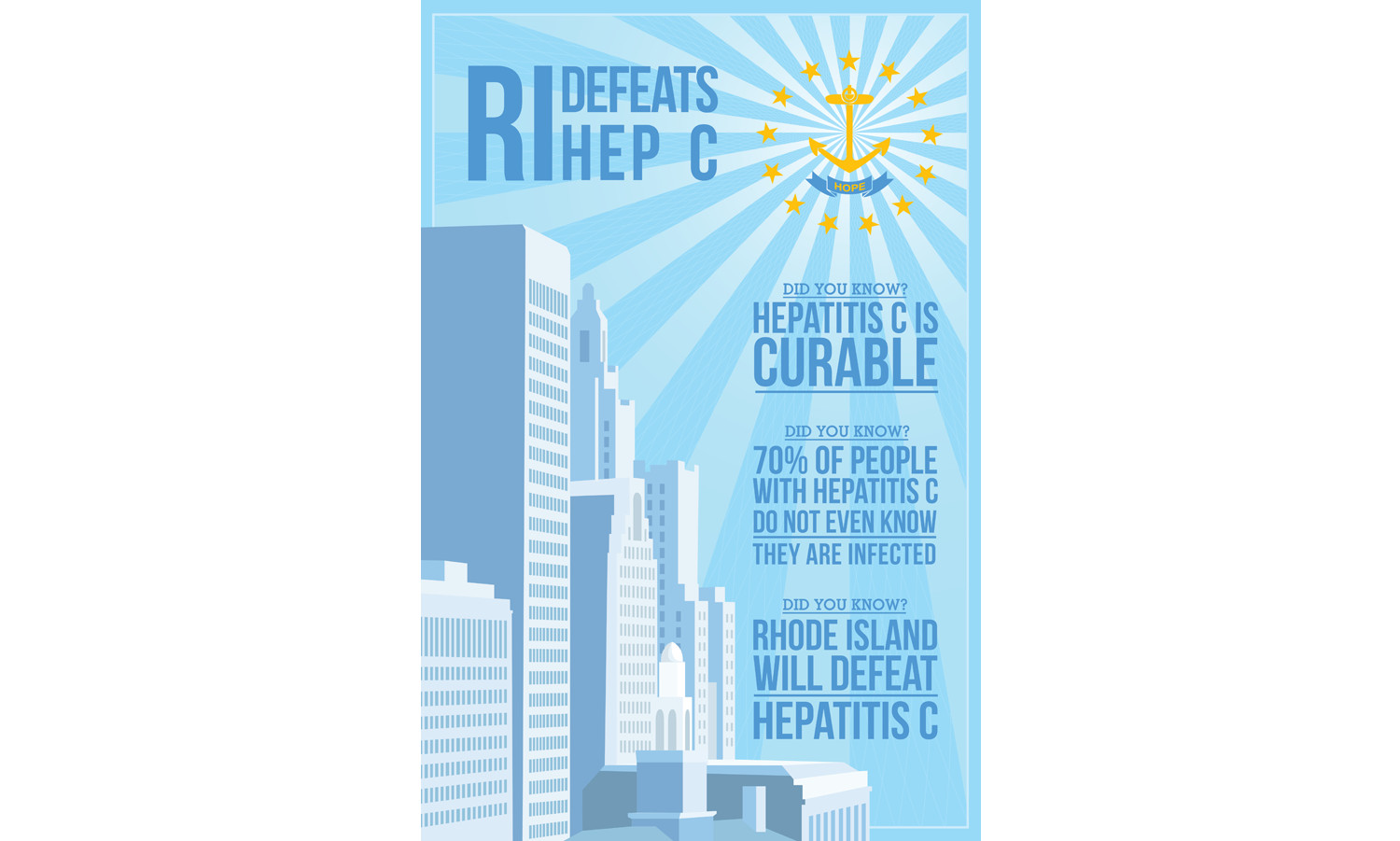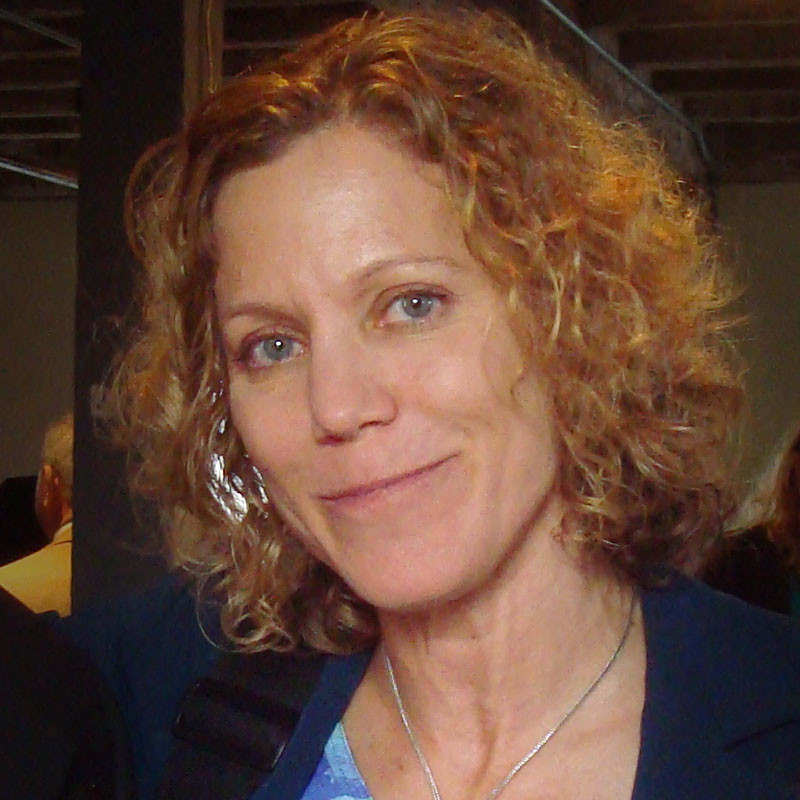Strategy takes aim to defeat Hep C in Rhode Island
Dr. Lynn Taylor translates research, innovation award into advocacy
PROVIDENCE – If Dr. Lynn Taylor is successful, Hepatitis C, or Hep C, will no longer be a silent killer and an invisible plague in Rhode Island.
The symptoms of the chronic liver disease, which results from infection by hepatitis C virus, may not appear for many years; more than 70 percent of people with Hep C are unaware that they are infected.
If you were born between 1945 and 1965, a Baby Boomer, there is a 1 in 30 chance you have been infected, according to Taylor.
About 75 percent of the 5 million who have been infected by HCV infections are Baby Boomers. Here in Rhode Island, an estimated 11,000 to 17,000 people may have been infected, but it’s hard to count the actual numbers of people because so few have been tested and diagnosed, Taylor said.
Taylor, the 2013 Rhode Island Innovation Fellowship winner, has used the $300,000 in award money to marshal resources to eradicate the disease in Rhode Island.
She launched the RI Defeats Hep C website, and has worked to coordinate free testing.
On Friday, May 16, Taylor’s group, RID Hep C, held an all-day conference in partnership with the Warren Alpert Medical School of Brown University, “Treating and Defeating Hep C in Rhode Island, at the Omni Providence Hotel, bringing national experts to discuss strategies.
Taylor held a dinner for the panelists the night before not at Café Nuovo or Al Forno but at The Friendship Café at Amos House.
Upcoming events include a special Defeat Help C WaterFire celebration on Saturday, July 26, in honor of World Hepatitis Day on July 28.
ConvergenceRI caught up with Taylor for an interview as she was finishing up last-minute details for the conference. She spoke in a rapid-fire, passionate voice.
ConvergenceRI: Why has it been so difficult to raise public awareness about Hep C?
TAYLOR: There is no organized vocal constituency, as with HIV/AIDS. Nobody to lobby. No gay men, no ACT UP for hepatitis C. It is a silent and completely invisible epidemic.
It’s an asymptomatic disease, but now, the epidemic’s peaking, as people with liver disease are getting sick and dying.
Until recently, there were no good treatments. When I was in med school, I had maybe an hour and half training on Hep C in four years.
ConvergenceRI: A new drug effective in treating Hep C has just been introduced, but it costs $1,000 a dose and a total course of treatment runs about $84,000. Is it a good financial investment for insurance companies and medical care to make?
TAYLOR: Out of context, the numbers sound horrific. But, put in a different context, the numbers show an advantage in using the drug to treat this disease.
Liver disease is a horrible way to die. Before, it was treated with horrible, toxic, nasty drugs. We are on the verge of a revolution in Hep C drugs; there are huge potential breakthroughs. At the conference we’re going to talk about a whole bunch of new drugs.
We need to look beyond the fact that one company [may have] gotten greedy.
The costs of not treating the disease are huge, too. Liver transplants are very expensive. They include a lifetime of pills and drugs to avoid complications.
The problem is that we’re not allowed to regulate prices for drugs under Medicare. We won’t see prices come down until we get more competition.
[The new drug treatments] are going to save a lot of money.
ConvergenceRI: How important is it to change the prescription drug prices by allowing competition for Medicare?
TAYLOR: Baby Boomers are covered by Medicare. The big pharmaceutical companies' [efforts] to keep Medicare from negotiating drug prices has to be overturned. Medicare should be able to negotiate drug prices on Hep C.
The VA is the largest provider treating Hep C. The VA can negotiate with drug companies; they get a 50 percent discount. Europe can negotiate on drug prices. Our country, the United States, is going to pay for the rest of the world’s drugs.
It’s not the [cost] of the new Hep C pill; it’s the structure that has been set up in Medicare. We all pay for Medicare.
CovergenceRI: What about for Medicaid in Rhode Island?
TAYLOR: Rhode Island Medicaid can’t afford this drug, and Hep C will fall disproportionately on the Medicaid population. [To provide the drug to every patient with Hep C ] would bankrupt Rhode Island Medicaid. [Representives from RI Medicaid] are coming to the conference and we hope to help them figure this out.
What’s being talked about [for the prison population] and in other states is a type of rationing, adhering to the principals of distributive justice. Instead of it being first come, first served, the drug would be given to the persons with the worst liver disease.
ConvergenceRI: What are the things in Rhode Island that we can do better to treat Hep C?
TAYLOR: We’re trying to raise the level of reimbursements for providers. It’s a very low area of medical reimbursements. In the past, very few people would do Hep C work. This year, because of the revolution in medications, [the landscape] is changing.
The greatest benefits in one-three-five years is to help the people with very advanced liver disease. We also need to focus on screening, diagnosis and prevention.
We need to better map out the epidemic. We need to use the system of electronic medical records, so that there is pop-up reminder [to caregivers] for everyone born between 1945 and 1965 to get a Hep C test.
We need to make sure that all the health insurers in Rhode Island cover the testing, to help in the screening of Baby Boomers – and not just leave it up to them. Rhode Island, we are a state that is small and collaborative, we can work together. We can make a big dent.
We can prevent the sadness, the funerals, the number of people who die who shouldn’t have died, to stave of this tidal wave of misery and suffering and costs.
For more information, go to the www.ridefeatshepc.com.







